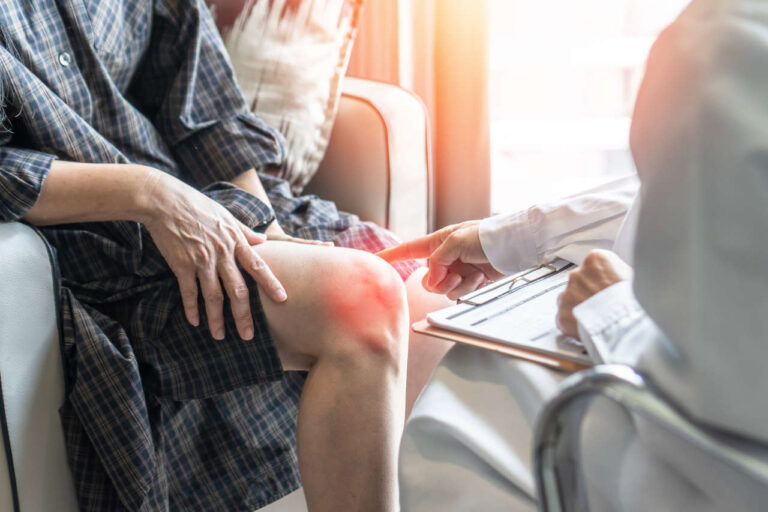
Small fiber neuropathy (SFN), a nerve problem characterized by severe pain attacks in the hands or feet, can impact multiple aspects of an individual’s life. The daily struggle with pain, uncertainty about the future, and a sense of identity loss can impair a person’s physical, social, emotional, and mental health.
Поговорите со специалистом о помощи в доплате
If you have small fiber neuropathy, below is a list of recommended tips to help you manage your daily life.
Eat a Healthy Diet
Focusing on foods that nourish your nerves is a great way to support nerve health. It is also critical to avoid foods that hurt the nerves. That being said, there isn’t a specific diet that has been shown to improve SFN.
Make sure to incorporate plenty of vegetables and whole fruits into your diet. Also, eat foods rich in vitamin B12 (cobalamin), such as meat, fish, dairy, eggs, and fortified cereals. Your body uses vitamin B12 to regenerate and repair nerve fibers.
Avoid taking large amounts of vitamin B6 (pyridoxine), as it can worsen nerve damage. Although the risk of nerve damage from dietary vitamin B6 is insignificant, talk to your doctor before starting a supplement that contains high amounts of vitamin B6.
Limit or avoid gluten-containing foods like pasta, noodles, crackers, breads, cereals, and breakfast foods.
Lastly, limit or stop alcohol intake, as alcohol is well-known to be toxic to nerves, which can potentially worsen SFN.
To learn more about the serving sizes, safe drinking levels, and other dietary tips, read our comprehensive article here.
Get Enough Sleep
Restless legs, bed sheet intolerance, and pain can interfere with sleep in people living with small fiber neuropathy.
On the other hand, sleep deprivation can make you more sensitive to pain [1]. In simple terms, people living with SFN who don’t get enough sleep are more likely to experience severe pain.
To break this vicious cycle and get a proper night’s rest, experts recommend:
- Sticking to a regular bedtime/wake-up schedule
- Establishing pre-bedtime rituals to help you relax, such as practicing deep breathing techniques
- Limiting or avoiding caffeine several hours before bedtime
- Avoiding alcohol or having heavy meals 2 – 3 hours before going to bed
- Staying away from screens about 1 – 2 hours (or at least 30 minutes) before bed
Changing the sleep position can help you sleep better. If your symptoms worsen in bed, consider sleeping in a recliner. Keep a pillow underneath the thighs if you sleep on the back, between the thighs if you are a side sleeper, or under the stomach if you sleep on the stomach.
Exercise

According to the “Foundation for Peripheral Neuropathy,” the following are the essential components of a comprehensive exercise routine [2]:
Aerobic exercise
Aerobic exercise raises your heart rate. Examples include brisk walking, jogging, running, swimming, and stationary cycling. If pain makes walking and running difficult, consider swimming or stationary cycling. Aim to get 30 minutes of aerobic exercise at least 3 days a week.
Flexibility exercise
Also called stretching, these exercises stretch the muscles and help improve joint flexibility. Stretch for about 5 minutes on most days of the week.
The best flexibility exercises for people living with small fiber neuropathy are:
- Calf stretch
- Seated hamstring stretch
- Plantar fascia (bottom of the feet) stretch
Strength training
Strength training makes your muscles, bones, and joints stronger. It also lowers the risk of injury. Examples of strength training exercises include calf raises, bodyweight squats, and lunges. It’s recommended to do these exercises at least twice per week.
Balance exercise
These exercises improve balance and lower the risk of falls. Examples include single knee lift, single leg squat, tightrope, and tree pose. You can do them as often as you’d like.
Получите финансовую помощь
Manage Stress
Stress and chronic pain share a bi-directional relationship. Chronic pain can make you more likely to feel stressed, while stress may worsen some of your symptoms.
Additionally, anxiety or depressive symptoms affect about one-third of individuals with small fiber neuropathy [3]. The severity and duration of pain determine the risk of developing mental health disorders.
Other contributing factors can include the feeling of loneliness, altered self-perception, and loss of employment.
Below are some tips to help you manage stress:
- Practice deep breathing exercises. Only a few minutes a day can work wonders.
- Engage in meaningful activities. This will help boost your confidence.
- Exercise to improve your mood.
Connect With Your Family and Friends
People living with SFN complain that they get hurt when people around them fail to understand their situation. Moreover, they may experience loneliness and the loss of friendships [4]. Positive emotions, which correlate with healthy relationships, are shown to decrease perceived pain [5].
Talk to Your Provider
There is no one-size-fits-all approach to managing SFN symptoms. What works for one person may not work for another. For this reason, you should regularly communicate with your provider about how things are progressing for you.
ССЫЛКИ:
- Lautenbacher, Stefan et al. “Sleep deprivation and pain perception.” Sleep medicine reviews vol. 10,5 (2006): 357-69. doi:10.1016/j.smrv.2005.08.001
- Foundation for Peripheral Neuropathy. “Exercise and Physical Therapy | the Foundation for PN.” The Foundation for Peripheral Neuropathy, 20 Jan. 2023, www.foundationforpn.org/living-well/lifestyle/exercise-and-physical-therapy.
- Damci, Aysun et al. “Anxiety and depression in small fiber neuropathy.” Journal of the peripheral nervous system : JPNS vol. 27,4 (2022): 291-301. doi:10.1111/jns.12514
- Damci, Aysun et al. “Living with small fiber neuropathy: insights from qualitative focus group interviews.” The Journal of international medical research vol. 50,11 (2022): 3000605221132463. doi:10.1177/03000605221132463
- Peters, Madelon L. “Emotional and Cognitive Influences on Pain Experience.” Modern Trends in Psychiatry, 2015, pp. 138–52. https://doi.org/10.1159/000435938.













